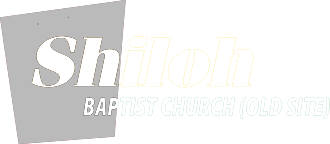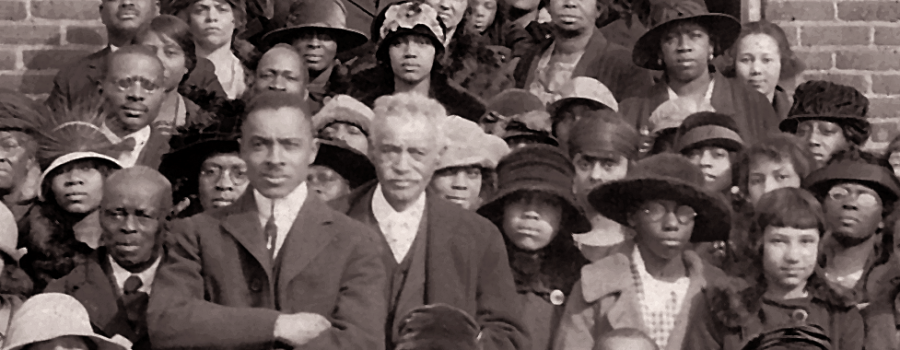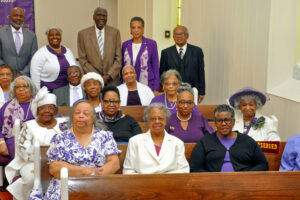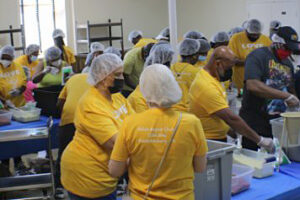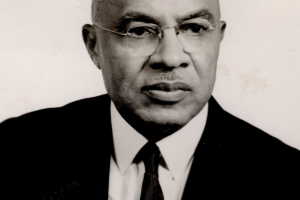Few years have been as tumultuous as 2020. Here in Fredericksburg, Virginia, as elsewhere, young and old alike have endured a deadly pandemic, periods of international unrest, increased racism, attempted political power grabs and vigorous counter-demonstrations, economic upheaval, and more.
As African Americans, we can’t help but see parallels. The tumultuous events of 2020 are an echo of our long journey, a journey in which we repeatedly have had to face agonizing social injustices, economic inequities, and great physical dangers. For us as a people, the weak efforts in response to these issues — and the many unfulfilled promises to mitigate the evil and to affirm the inherent value of our lives — these are nothing new.
And because these recent events are such a dramatic echo of what we as a people have endured for so long, we also can’t help but pause to celebrate some of the powerful traditions that have sustained us in the past, powerful traditions that likewise offer the potential of sustaining us in the future.
For African Americans in the greater Fredericksburg area, some of these historically significant and deeply inspiring traditions involve our distinctive celebration of certain annual holidays, especially Easter, Thanksgiving, and Christmas.
Unfortunately, in 2020, due to COVID-19 restrictions, our historically distinctive celebration of these holidays was not possible. Yet we claim the power of our heritage — and look forward to the time when we will be able to resume that which connects us to the past and empowers us for the future.
By the 1830s and 1840s, White members of Fredericksburg-area congregations were joyfully gathering on these holidays. Typically, they held their festive services at 10 or 11 in the morning. But legally — and inhumanely — the enslaved of Fredericksburg were excluded. Why should “inferior” members of these congregation be occupying any of the scarce seating, wondered some of the area’s leaders.
Undeterred and spiritually empowered, the enslaved of Fredericksburg began a silent, peaceful protest. On major holidays, they instituted their own informal “sunrise” gatherings, meeting where they could, when they could. It was a “taste of freedom,” the freedom to gather, the freedom to sing and rejoice, the freedom to celebrate in the spirit of the One who had declared to a tyrants of an earlier era, “Let my people go!”
After the Civil War, these “sunrise” celebrations continued.
At last, many survivors of enslavement had the freedom to enter their own church building, not through a side door, as they had before, but proudly through the front door. Finally they could worship with courage and hope, sitting where they wanted, even on the main floor, no longer banished to the balcony. And finally they could hear “their own” pastor preach, fully in keeping with the Spirit’s leading, for no longer was there a White overseer trying to keep a tight lid on what might be said.
These celebratory “sunrise” services on Easter, Thanksgiving, and Christmas were held in the small brick building on Sophia Street that early African Americans in Fredericksburg had long embraced as “Shiloh,” although many White folks in town, even after the Civil War, repeatedly referred to it, somewhat dismissively, as “the African Baptist church.”
On these major holidays, the hard-working, still exploited Black citizens of Fredericksburg typically made their way to church on foot. The weather might be inclement, but they came with joy. The sky might be dark, but there was a Light in their hearts. Past promises might feel unfulfilled, and racist injustices might still be raging, but they kept pushing forward, for a liberating Lord was walking beside them.
Even in those early years, when our war-torn building was in deep disrepair, even when the only seats were makeshift boards and cast-off benches, folks came with joy. By their presence, they were honoring those enslaved ancestors who, like them, had so courageously gathered at sunrise to celebrate God’s abundant gifts, God’s abundant strengths.
Over time, the one Fredericksburg congregation known as “Shiloh” became three sister congregations, each sharing a common heritage: Shiloh Old Site on Sophia Street, Shiloh New Site on Princess Anne Street, and Mt. Zion on Wolfe Street.
Together, except for the 2020 year of COVID-19, our three congregations have continued the tradition, meeting together at 6 a.m. on three major holidays. Every Easter morning, we have gathered for a joint service at Shiloh New Site; every Thanksgiving morning, we have gathered for a joint service at Shiloh Old Site; and every Christmas morning, we have gathered for a joint service at Mt. Zion.
As 2020 comes to a close, members of these three congregations can’t help but pause to applaud the city of Fredericksburg for its recent initiatives, including an effort to research, establish, and publicly disseminate a more inclusive version of the city’s history, a history that includes greater recognition of the contributions and impact of the area’s African Americans — an impact felt since the earliest days of this historic city.
In spite of past deprivations, our footprints — including the now sacred tradition of gathering at “sunrise” on important holidays — dramatically reveal our rich and ultimately triumphant journey of faith.
With great perseverance and a resilient hope — a hope enhanced and strengthened over the decades by many devoted and determined leaders and knowledgeable activists — Fredericksburg’s passionate and proficient African American community has repeatedly pushed onward and upward, creatively forging new possibilities, even when hopes seemed dim, even when doors seemed shut.
“About Zion I will not be silent,
about Jerusalem I shall not rest
until saving justice dawns
for her like a bright light
and her salvation
like a blazing torch.”
Isaiah 62:1, New Jerusalem Bible
Our continuing commitment to “sunrise” services on major three important holy days functions as a reminder. It’s a reminder that the transformative work that brings healing and hope, including the sometimes uncomfortable efforts that are needed to overcome today’s racial and economic injustice, breaking down walls and opening doors, can never be abandoned. We, too, have to join with God in making a way, even when there seems to be no way.
In recognition of that reality, we are thankful for the large, diverse, and enthusiastic crowd from a multitude of churches that gathered at Shiloh Old Site at sunrise on Thanksgiving Day 2017, filling the sanctuary. [Click to access a copy of the 2017 Thanksgiving morning program booklet.]
Together on these holy occasions, we affirm the undaunted faith, perseverance, and spiritual innovation of our enslaved African American ancestors. And together, at these “sunrise” celebrations, whomever we might be, we affirm our commitment to the dawning of that “new heaven and new earth” of which the book of Revelation so powerfully speaks, a Spirit-led world in which all of creation thrives with equality and dignity, wrapped in a Love that never fails.
— The History & Archives Committee,
Shiloh Baptist Church (Old Site)






